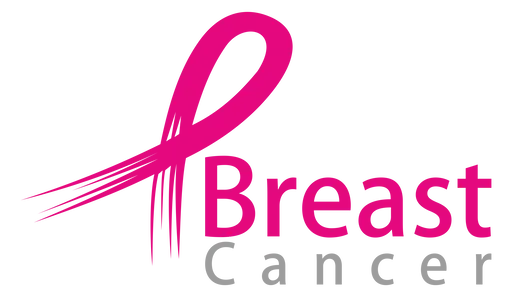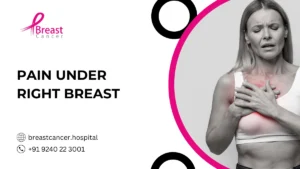Diet and Breast Cancer
“Diet and breast cancer” are closely linked, as what you eat can impact both risk factors and recovery. Nutrition plays a powerful role in supporting health during breast cancer treatment and helping reduce recurrence risks. In this post, we’ll explore how a balanced diet can help with breast cancer, which foods to incorporate, and dietary tips during chemotherapy.

The Connection Between Diet and Breast Cancer
Research on “diet and breast cancer” shows that certain foods can help support the body’s immune system, reduce inflammation, and provide essential nutrients. While no food can guarantee cancer prevention, a balanced diet may improve overall well-being and assist in the body’s natural defenses. Maintaining a healthy weight, reducing sugar and processed foods, and choosing whole, nutrient-dense options can provide substantial benefits.
The Role of Antioxidants and Nutrients
Antioxidants play an essential role in reducing cell damage, which can contribute to cancer development. Foods high in antioxidants, like leafy greens, berries, and nuts, help combat oxidative stress. Additionally, healthy fats, fiber, and vitamins in various foods support the immune system, which is critical during breast cancer treatment.
17 Foods That Prevent Breast Cancer
While no single food can prevent breast cancer, incorporating a variety of nutrient-rich foods can offer some protection. Here are “17 foods that prevent breast cancer” by providing antioxidants, anti-inflammatory properties, and other beneficial nutrients.
- Broccoli: Contains sulforaphane, a compound shown to reduce breast cancer cells.
- Berries: Rich in antioxidants like vitamin C, which combat free radicals.
- Leafy Greens: Spinach, kale, and Swiss chard are nutrient-dense and high in fiber.
- Turmeric: Contains curcumin, an anti-inflammatory compound.
- Tomatoes: Rich in lycopene, which may help reduce cancer risk.
- Flaxseeds: Packed with lignans, which have estrogen-blocking properties.
- Garlic: Contains compounds that may inhibit cancer cell growth.
- Walnuts: High in omega-3 fatty acids and antioxidants.
- Green Tea: Contains polyphenols with cancer-fighting properties.
- Carrots: High in beta-carotene, which may reduce cancer risk.
- Beans: A fiber-rich food that supports digestion and hormone balance.
- Citrus Fruits: Vitamin C and flavonoids support immunity and reduce inflammation.
- Mushrooms: Contain compounds that boost the immune system.
- Whole Grains: Fiber-rich foods that may reduce estrogen levels.
- Avocado: High in healthy fats and antioxidants.
- Pomegranate: Contains anti-inflammatory and antioxidant properties.
- Olive Oil: A source of healthy fats and polyphenols.
These foods, combined with a well-rounded diet, support the immune system and overall health, helping to build a stronger defense against cancer.
Nutrition and Breast Cancer
Nutrition plays a fundamental role in breast cancer prevention, treatment, and recovery. A poor diet can increase inflammation, obesity, and hormonal imbalances—factors linked to breast cancer. On the other hand, the right dietary choices can help fight cancer cells, boost immunity, and enhance treatment outcomes.
The Link Between Diet and Breast Cancer
- A plant-based diet rich in antioxidants helps combat oxidative stress, a major contributor to cancer.
- Certain foods can regulate estrogen levels, reducing hormone-related breast cancer risk.
- Maintaining a healthy weight through proper nutrition lowers inflammation and cancer risk.
- Chemotherapy patients require specialized diets to strengthen immunity and reduce side effects.
Choosing the best diet for breast cancer ensures a steady supply of nutrients to fight the disease while promoting overall health.
Best Diet for Breast Cancer
The “best diet for breast cancer” includes a mix of vegetables, fruits, lean proteins, and whole grains. While each person’s nutritional needs are unique, many doctors and nutritionists recommend a Mediterranean-style diet for breast cancer patients. This diet is rich in plant-based foods, healthy fats, and lean proteins, which support the immune system and reduce inflammation.
Key Components of a Breast Cancer-Friendly Diet
- Vegetables and Fruits: A variety of colorful produce offers essential vitamins, minerals, and antioxidants.
- Whole Grains: Choose complex carbohydrates like brown rice, quinoa, and oats to stabilize blood sugar.
- Lean Proteins: Chicken, fish, and legumes provide the protein necessary for energy and tissue repair.
- Healthy Fats: Olive oil, avocados, and nuts offer heart-healthy fats that help reduce inflammation.
Reducing processed foods and sugar is also advised, as they can lead to weight gain and inflammation, both of which may increase the risk of cancer recurrence. By focusing on whole foods, breast cancer patients can maintain a balanced diet that supports their body through every stage of treatment.
Foods and Beverages to Limit or Avoid
Some foods and beverages are known to increase the risk of developing breast cancer or hinder recovery for those undergoing treatment.
Foods to Avoid:
- Processed Meats: These are high in carcinogens and should be consumed sparingly.
- Sugary Beverages: Excess sugar can lead to weight gain, which is a known risk factor.
- Alcohol: Even moderate consumption can elevate breast cancer risk.
Food for Breast Cancer Patients During Chemotherapy
Chemotherapy can have side effects that affect appetite and digestion, making it challenging to maintain proper nutrition. Eating the right “food for breast cancer patients during chemotherapy” helps manage these side effects and provides energy for healing.
Recommended Foods During Chemotherapy
- Ginger: Helps alleviate nausea and can be added to teas, soups, or smoothies.
- Bananas: Easy to digest and a good source of potassium for those experiencing vomiting.
- Bone Broth: Rich in nutrients and easy on the stomach, offering hydration and minerals.
- Soft Proteins: Foods like eggs, tofu, and yogurt are gentle on the stomach and high in protein.
- Smoothies: Blending fruits, vegetables, and protein powders into smoothies is an effective way to pack in nutrients, especially when solid food is difficult to consume.
Hydration is also essential during chemotherapy, as many treatments can cause dehydration. Drinking water, herbal teas, or electrolyte-rich drinks can help counteract this effect. Staying nourished can support strength and stamina during treatment, helping the body recover more efficiently.
Maintaining a Healthy Weight
Achieving and maintaining a healthy weight is paramount in reducing the risk of breast cancer. Excess body fat, particularly around the abdomen, can produce estrogen, which has been linked to certain types of breast cancer. Moreover, obesity increases the risk of recurrence among breast cancer survivors.
Strategies for Weight Management:
- Balanced Diet: Opt for the “best diet for breast cancer,” which includes lean proteins, vegetables, and healthy fats.
- Regular Exercise: Engage in at least 150 minutes of moderate activity weekly.
- Mindful Eating: Avoid high-calorie foods and focus on portion control.
Diet and Breast Cancer Risk
The connection between diet and breast cancer risk has been the subject of extensive research. Certain dietary habits may reduce your risk, while others could increase it. A nutrient-rich diet can provide your body with the antioxidants and anti-inflammatory compounds needed to combat cancer development.
Key Takeaways:
- Plant-Based Foods: Including “17 foods that prevent breast cancer,” such as broccoli, spinach, and berries, can help neutralize free radicals and lower inflammation.
- Whole Grains and Legumes: Rich in fiber, these foods can regulate hormone levels, which is critical for reducing breast cancer risk.
- Healthy Fats: Omega-3 fatty acids found in fatty fish, flaxseeds, and walnuts are beneficial in mitigating inflammation and supporting overall health.
Conclusion
Diet and breast cancer are interlinked, with nutrition playing a crucial role in prevention, treatment support, and recovery. By focusing on whole, nutrient-rich foods, breast cancer patients can strengthen their bodies, potentially reduce recurrence risk, and manage treatment side effects more effectively. If you or a loved one is navigating breast cancer, consider consulting a nutritionist for personalized guidance on building a diet that supports health and recovery.




